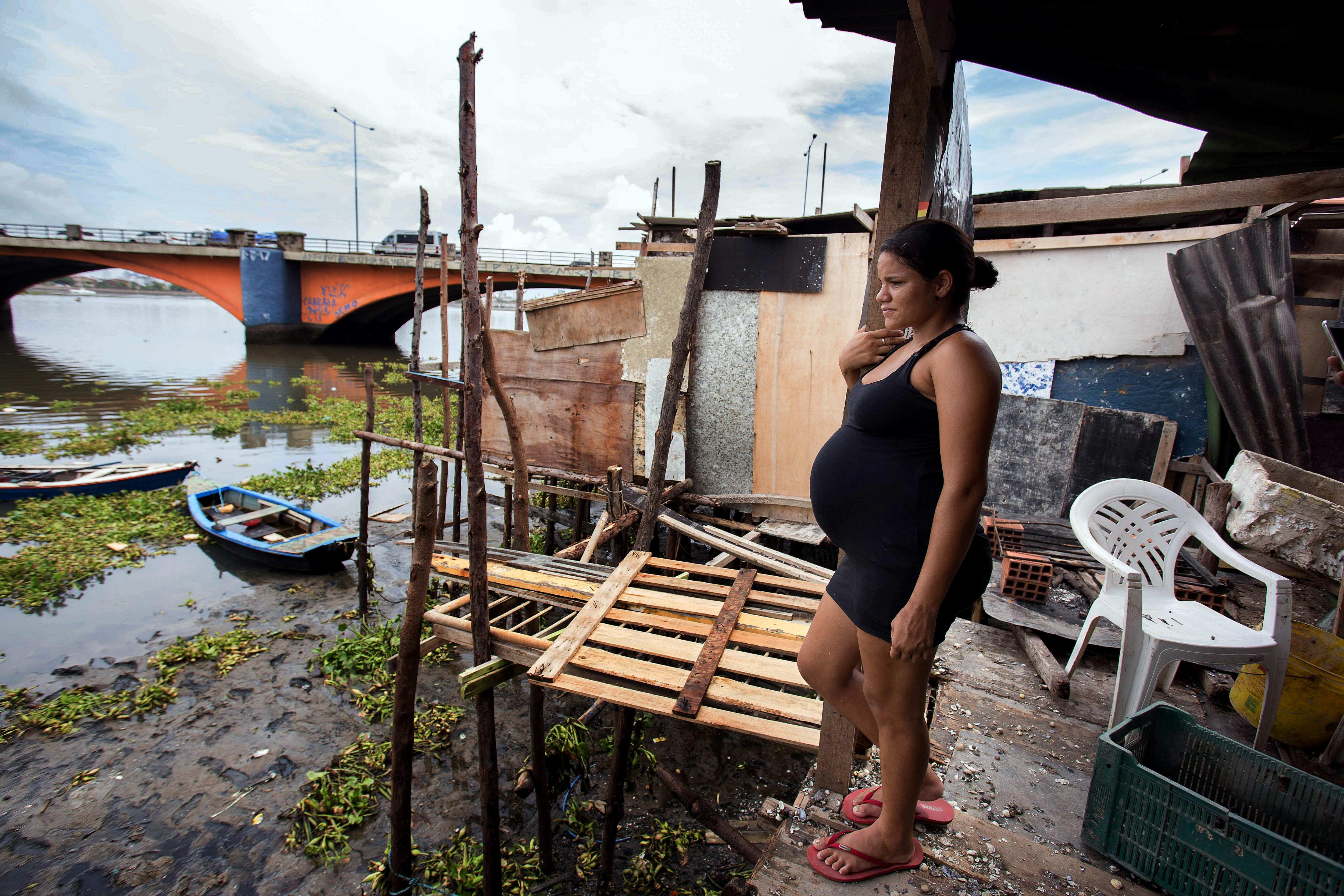Infant mortality rate higher among pregnant women exposed to natural disasters, study shows
A new study suggests pregnant women and newborn children could be particularly vulnerable to the climate crisis, reports Clea Skopeliti

Pregnant women exposed to natural disasters are more likely to give birth to underweight babies or experience foetal death, a study has shown, as researchers warn the climate crisis raises the risk of extreme weather events.
The peer-reviewed study by researchers at the University of Exeter examined the effect of Hurricane Catarina on young mothers. The tropical cyclone hit southern Brazil in March 2004, destroying 1,500 homes and causing $350m (£251m) in damage – between 3.8 and 5.8 per cent of the affected areas’ GDP.
Prof Climent Quintana-Domeque of Exeter University’s Business School and his co-authors compared data on births and deaths of babies born in the years before, during and after the hurricane, concluding that those born to mothers aged 15-24 affected by the natural disaster had significantly worse health outcomes.
The study, which was published in the Journal of Human Resources, found that among younger mothers exposed to the hurricane, babies’ average birth weight fell by 82 grams, while the probability of having an underweight baby (weighing less than 2.5 kilos) increased by 3.4 per cent. The rate of foetal death increased by around 1.7 per cent.
The negative effects were most pronounced among mothers in this age group, while the health of babies born to women aged between 25 and 49 did not appear to be impacted. The researchers suggested this could be linked to older mothers being more likely to have more stable living circumstances.
The team suggested younger mothers, who were more likely to be living in precarious socioeconomic circumstances, could be more vulnerable to maternal stress caused by a natural disaster.
Read more
More than 10 million people displaced by climate disasters in six months, report finds
Climate crisis: Extreme weather driving rise in major disaster events, UN report finds
Prof Quintana-Domeque said, “Unfortunately, due to climate change, the frequency and severity of natural disasters is on the rise. Pregnant women and their newborns are particularly vulnerable to these events.
“Future work should focus on the socioeconomic and biological mechanisms that mediate the impact of these disasters on certain groups of women.
“If we are able to better understand such mechanisms, policy makers will be better equipped to mitigate the harmful effects of these shocks.”
The study, which adds to a growing body of research linking socioeconomic status, stress and adverse birth outcomes, comes amid an analysis that calculated that 10.3 million people had been displaced by climate change-induced events in the last six months.
It also follows a UN report last year that found that the number of disasters caused by extreme weather events has surged over recent decades. The climate crisis is chiefly responsible for this spike.
Between 2000 and 2019, there were 7,348 major recorded disaster events, compared with 4,212 disasters between 1980 and 1999, the United Nations Office for Disaster Risk Reduction’s (UNDRR) research found.
Join our commenting forum
Join thought-provoking conversations, follow other Independent readers and see their replies
Comments